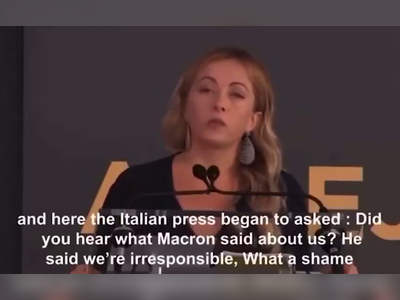Sanofi Faces Backlash Over $20 Billion U.S. Investment Plan
Company's decision to invest significantly in American R&D raises concerns over potential impacts in France and Europe.
Sanofi, the French multinational pharmaceutical company, has come under intense scrutiny following its announcement on May 15, 2025, to invest at least $20 billion in the United States over the next five years.
The investment is primarily intended for significant increases in research and development (R&D) spending and American production capabilities.
France's Economy Minister, Eric Lombard, criticized this decision as sending a "bad signal" during a time when investment in Europe, particularly in France, is crucial.
Trade unions in France voiced fears regarding a potential "industrial and social disengagement" in the pharmaceutical sector.
The announcement aligns with a broader trend where numerous pharmaceutical giants, such as Eli Lilly, Johnson & Johnson, Novartis, and Roche, have pledged substantial investments in the U.S., influenced by current U.S. administration policies and rhetoric, including threats of tariffs on imported medicines.
Industry analysts have highlighted that Sanofi's move could position the company favorably in future pricing negotiations in the U.S. market.
Fabien Mallet, a representative from the CGT trade union in France, expressed concerns that this investment may skew R&D efforts towards the U.S. market.
He accused the company of succumbing to external pressures, with the potential implications of diminishing France's role in pharmaceutical innovation.
Adrien Chantereine, a pharmaceutical sector expert, noted that the strategic realignment toward the U.S. makes sense given that half of Sanofi's revenue and a significant portion of its production come from that territory.
The announcement of this investment comes amid an evolving regulatory and economic landscape in the pharmaceutical sector.
The U.S. administration, under President Donald Trump, has indicated intentions to reduce medication prices significantly, which could directly impact the profit margins of pharmaceutical manufacturers.
Sanofi's $20 billion commitment has raised eyebrows, considering the broader implications for job security and research capabilities within France and Europe.
Sanofi has faced criticism over its employment practices, with reports indicating a loss of around 1,000 R&D jobs in France over the past decade due to various restructuring plans.
The company has stressed that it has made no announcements regarding reductions in investment in France but acknowledged potential shifts in priority towards more lucrative markets.
With the recent divestment of a significant portion of its over-the-counter products to an American investment fund, the call for greater favorable conditions from the European Commission has emerged among industry leaders.
Trade unions continue to express apprehension regarding what they perceive as a significant loss of sovereignty in public health and the pharmaceutical industry in Europe.
The investment is primarily intended for significant increases in research and development (R&D) spending and American production capabilities.
France's Economy Minister, Eric Lombard, criticized this decision as sending a "bad signal" during a time when investment in Europe, particularly in France, is crucial.
Trade unions in France voiced fears regarding a potential "industrial and social disengagement" in the pharmaceutical sector.
The announcement aligns with a broader trend where numerous pharmaceutical giants, such as Eli Lilly, Johnson & Johnson, Novartis, and Roche, have pledged substantial investments in the U.S., influenced by current U.S. administration policies and rhetoric, including threats of tariffs on imported medicines.
Industry analysts have highlighted that Sanofi's move could position the company favorably in future pricing negotiations in the U.S. market.
Fabien Mallet, a representative from the CGT trade union in France, expressed concerns that this investment may skew R&D efforts towards the U.S. market.
He accused the company of succumbing to external pressures, with the potential implications of diminishing France's role in pharmaceutical innovation.
Adrien Chantereine, a pharmaceutical sector expert, noted that the strategic realignment toward the U.S. makes sense given that half of Sanofi's revenue and a significant portion of its production come from that territory.
The announcement of this investment comes amid an evolving regulatory and economic landscape in the pharmaceutical sector.
The U.S. administration, under President Donald Trump, has indicated intentions to reduce medication prices significantly, which could directly impact the profit margins of pharmaceutical manufacturers.
Sanofi's $20 billion commitment has raised eyebrows, considering the broader implications for job security and research capabilities within France and Europe.
Sanofi has faced criticism over its employment practices, with reports indicating a loss of around 1,000 R&D jobs in France over the past decade due to various restructuring plans.
The company has stressed that it has made no announcements regarding reductions in investment in France but acknowledged potential shifts in priority towards more lucrative markets.
With the recent divestment of a significant portion of its over-the-counter products to an American investment fund, the call for greater favorable conditions from the European Commission has emerged among industry leaders.
Trade unions continue to express apprehension regarding what they perceive as a significant loss of sovereignty in public health and the pharmaceutical industry in Europe.









